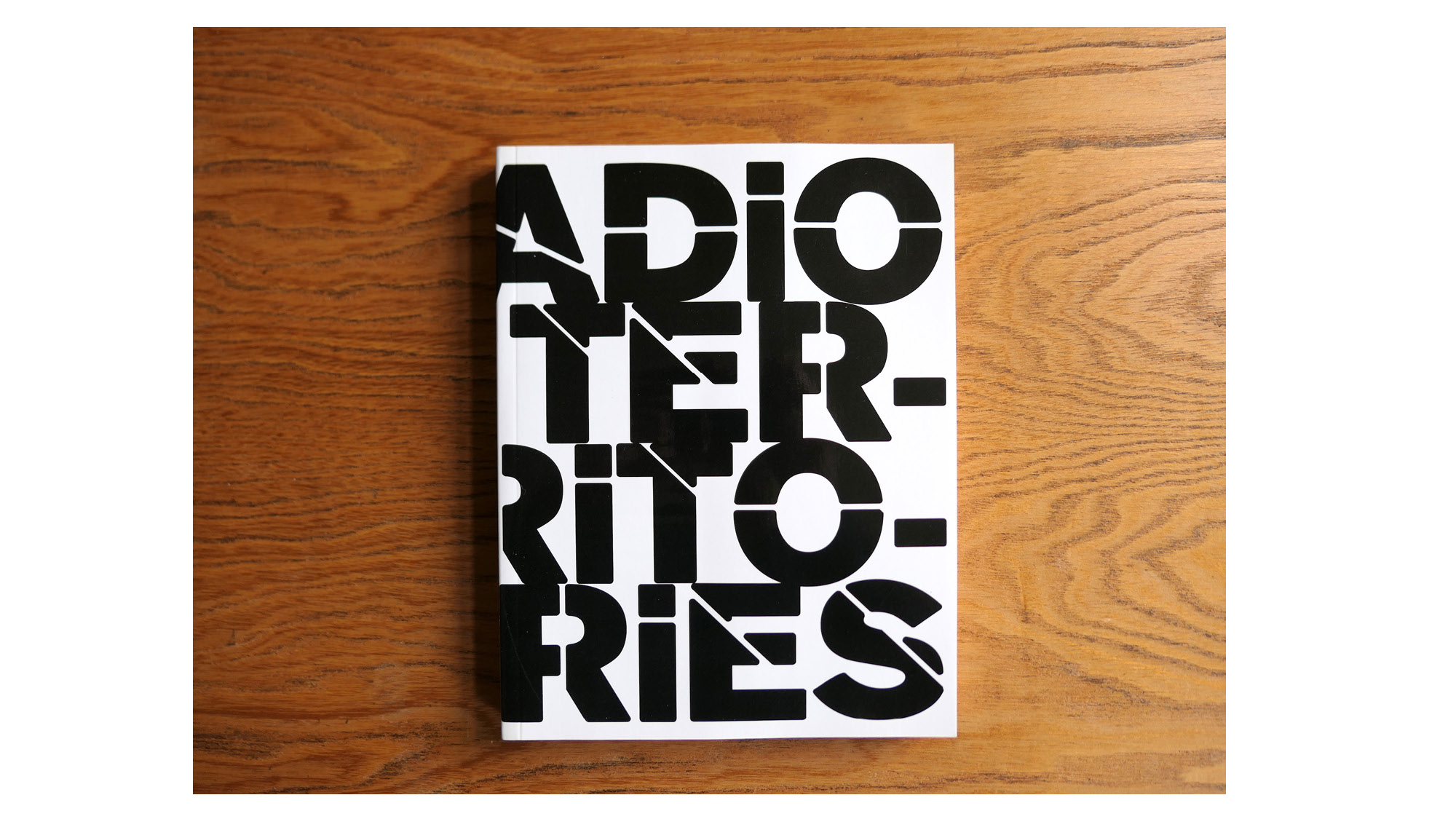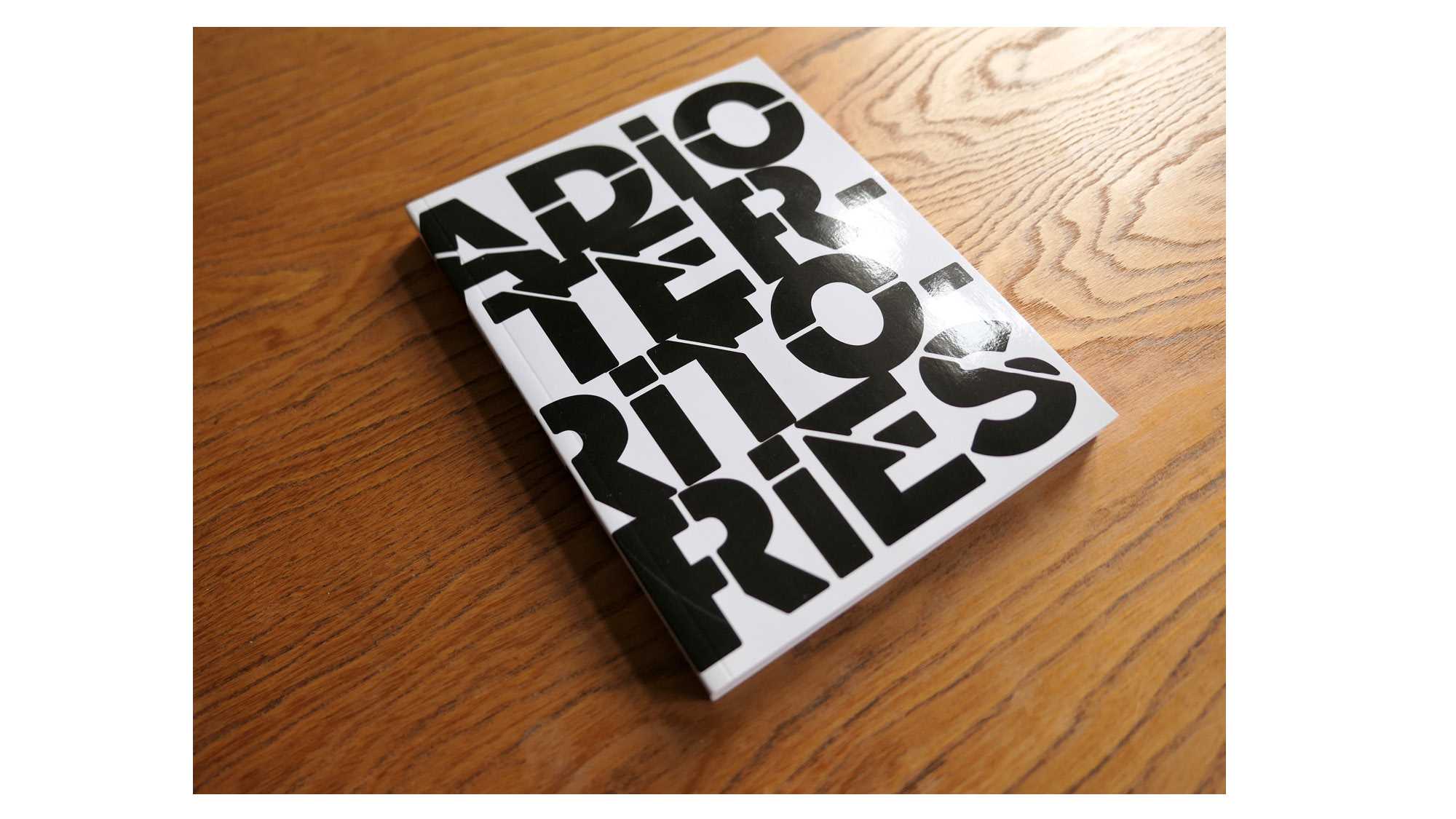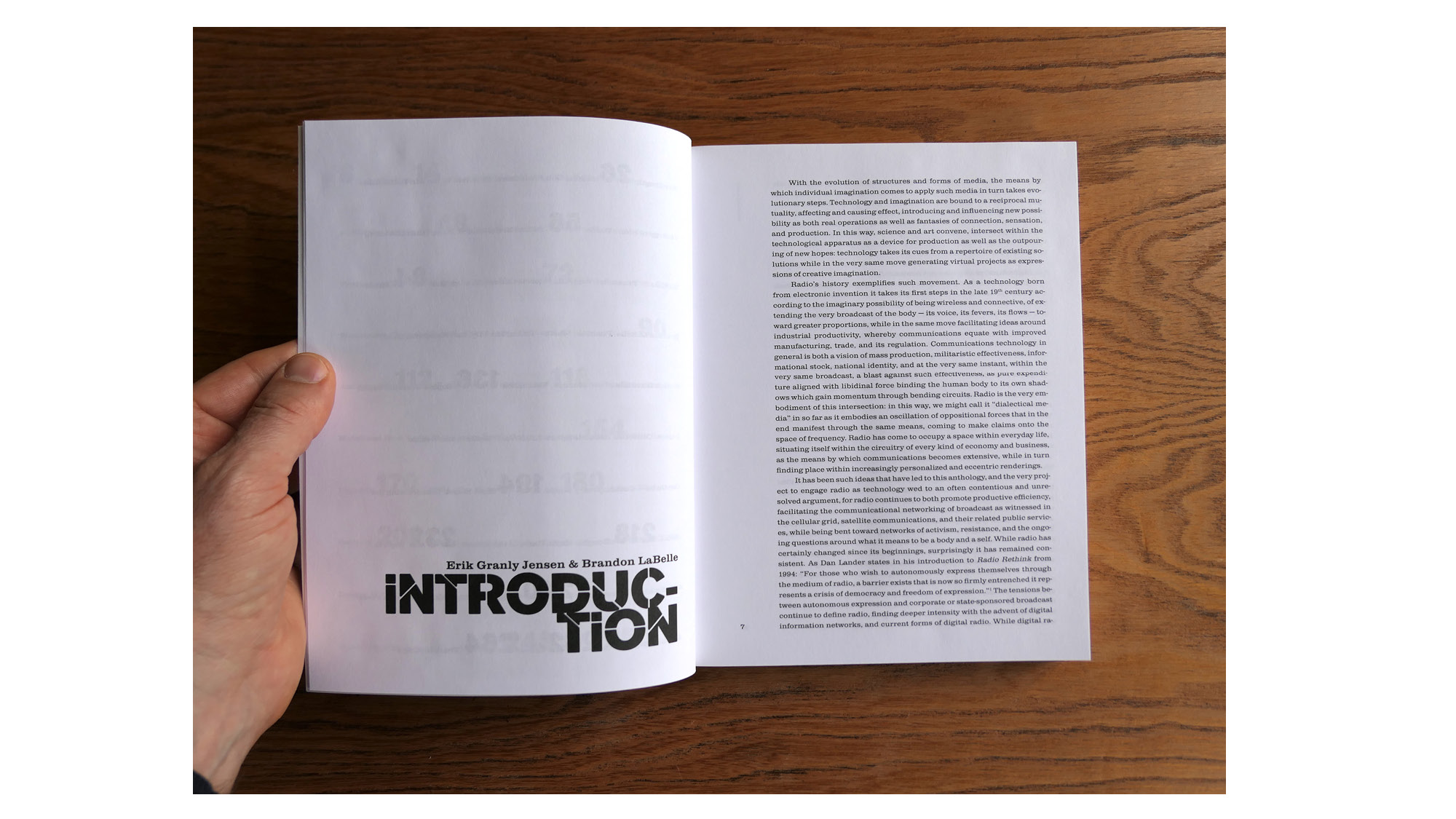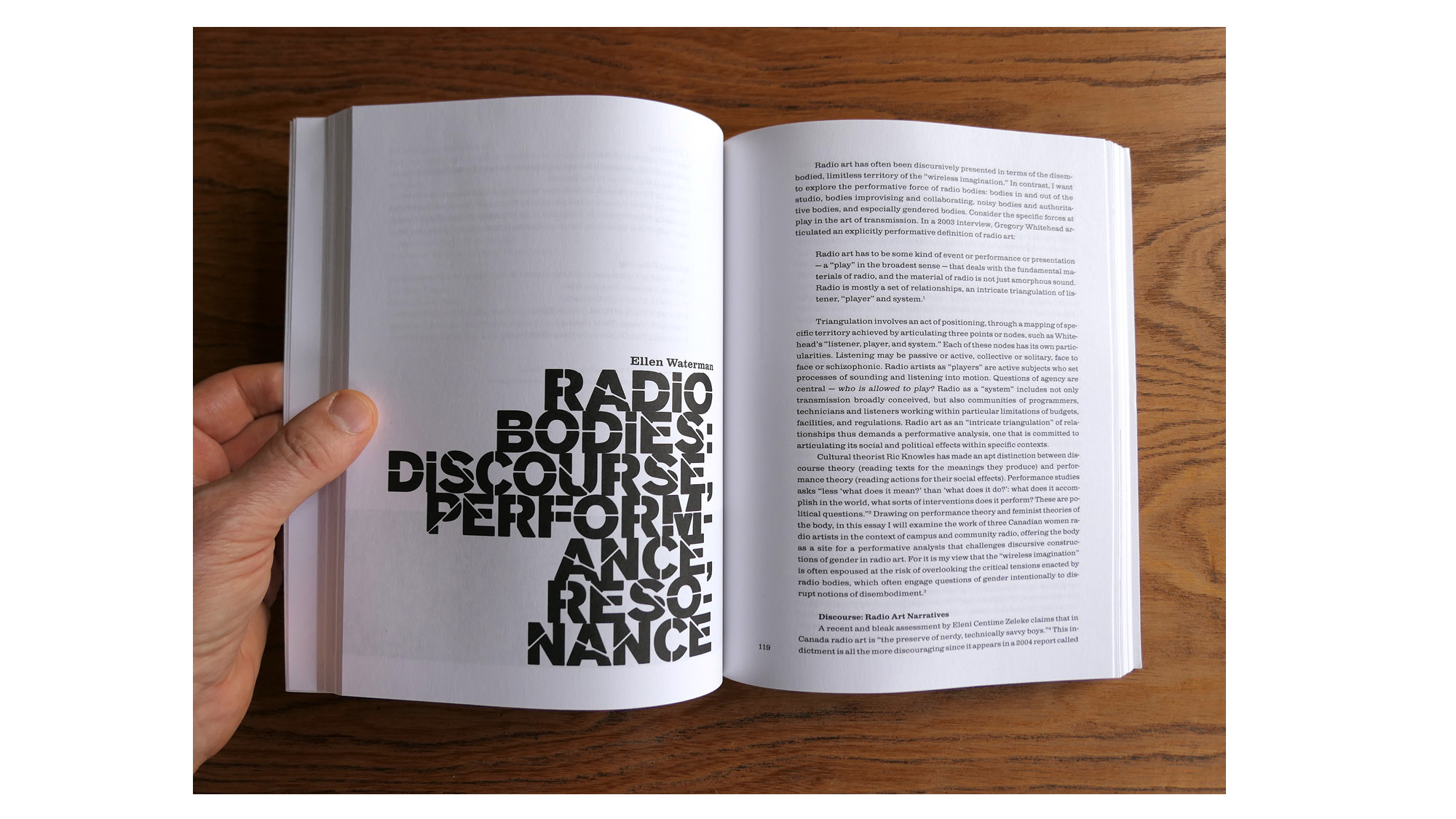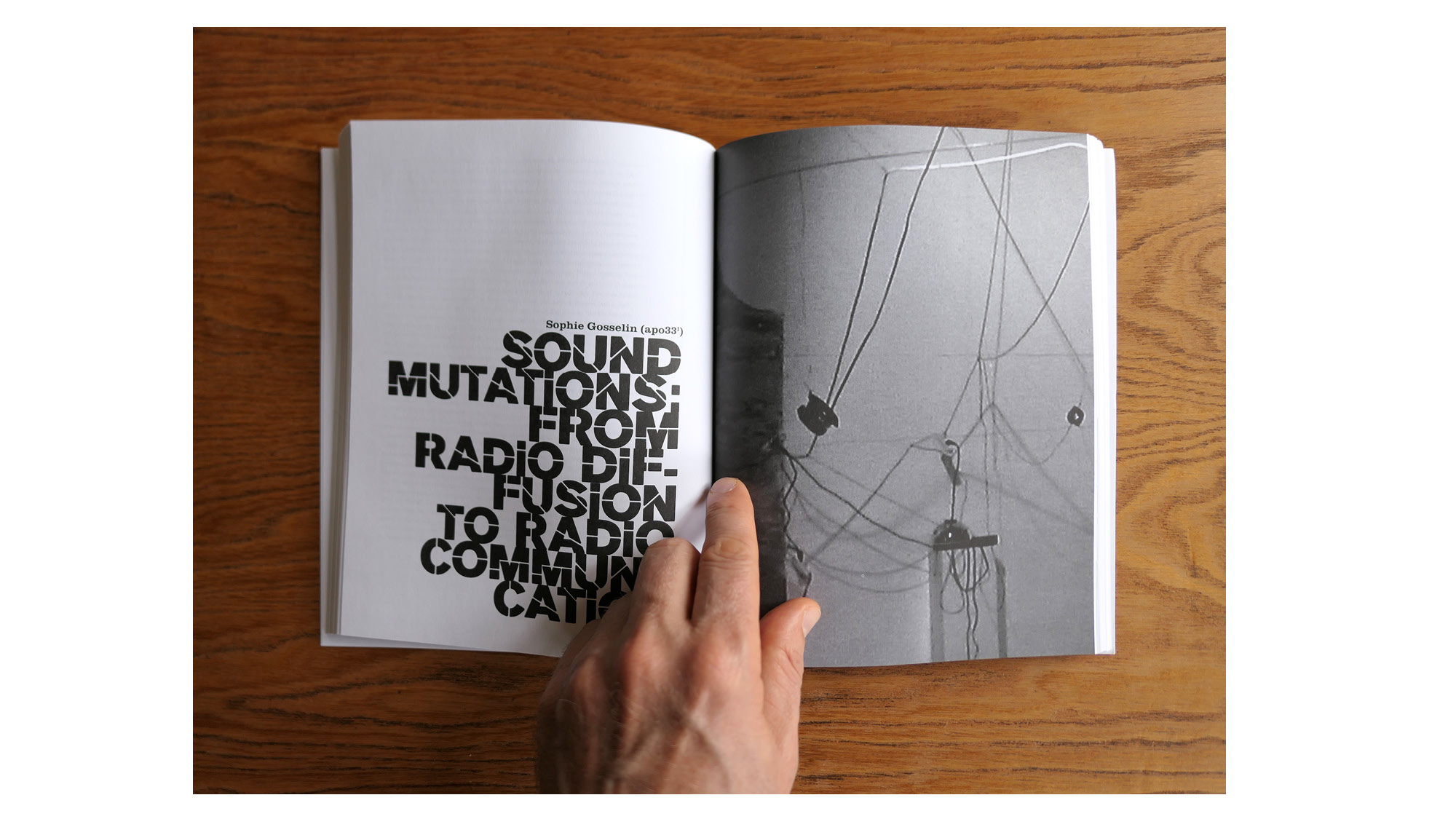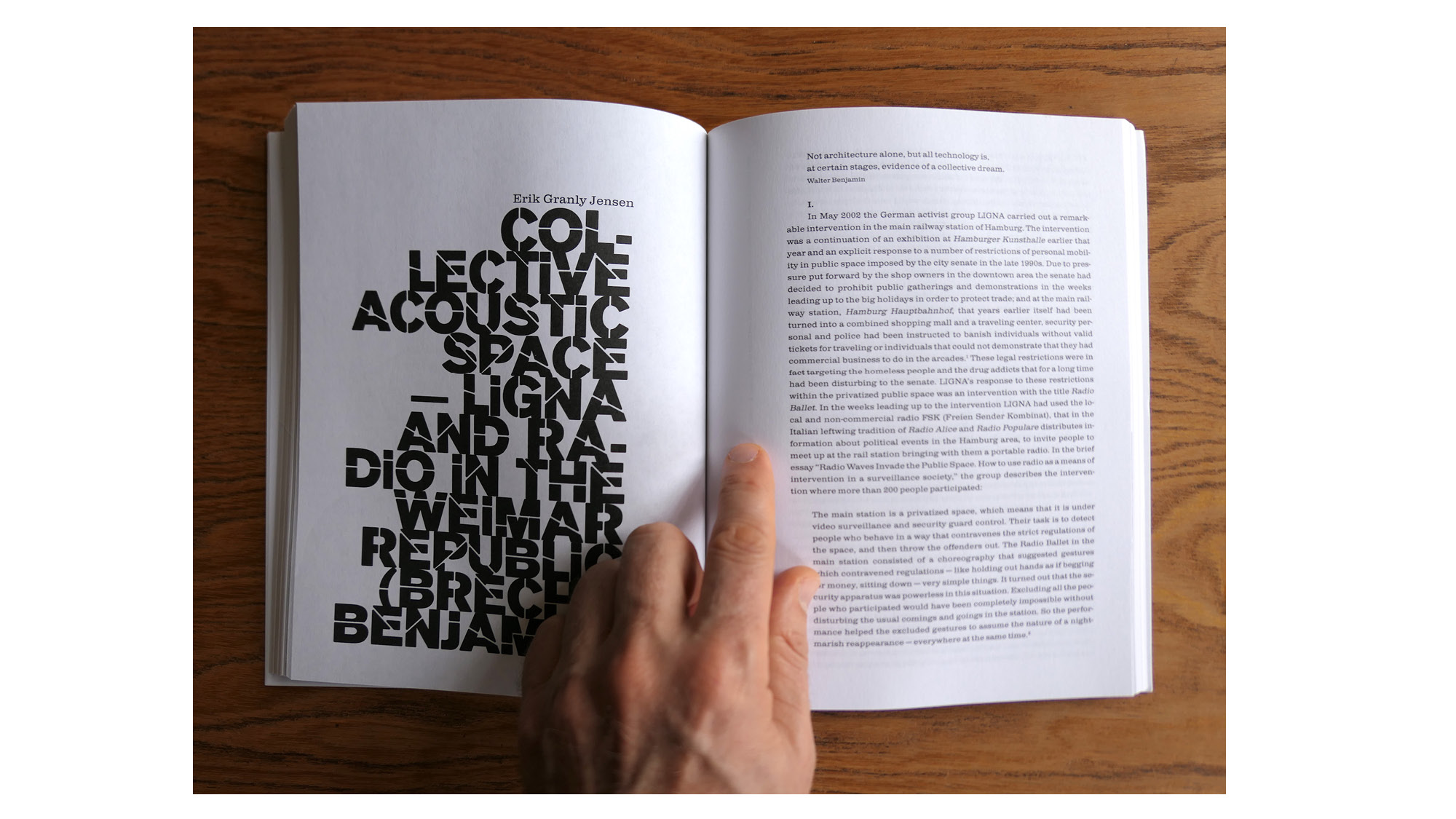ISBN: 978-0-9772594-1-0
17 x 22 cm (softcover)
264 pages (b/w ill.) + CD
Published: 2007
→ les presses du réel (EU)
→ DAP (US)
( review )
ERIK GRANLY JENSEN is associate professor at the Department for the Study of Culture at the University of Southern Denmark. He is the research leader of The Nordic Research Network for Sound Studies, sponsored by Nordforsk 2011-2014. He is also the co-editor of the online journal SoundEffects and a founding member of ESSA, The European Sound Studies Association. His most recent research areas include historical sound archives and radio art.
BRANDON LABELLE is an artist, writer and theorist living in Berlin. His work focuses on questions of agency, community, pirate culture, and poetics, which results in a range of collaborative and para-institutional initiatives, including: The Listening Biennial and Academy (2021-), Communities in Movement (2019-), The Living School (with South London Gallery, 2014-16), Oficina de Autonomia (2017), The Imaginary Republic (2014-19), Dirty Ear Forum (2013-), Surface Tension (2003-2008), and Beyond Music Sound Festival (1998-2002). In 1995 he founded Errant Bodies Press, an independent publishing project supporting work in sound art and studies, performance and poetics, artistic research and contemporary political thought. His publications include: The Other Citizen (2020), Sonic Agency (2018), Lexicon of the Mouth (2014), Acoustic Territories (2010, 2019), and Background Noise (2006, 2015). His latest book, Acoustic Justice (2021), argues for an acoustic model by which to engage questions of social equality. Since 2011 he works as Professor at the Faculty of Fine Art, Music and Design, University of Bergen.
Radio Territories
Edited by Erik Granly Jensen and Brandon LaBelle
The legacy of radio and the arts has spawned forms of radical culture, from early Modernist notions of the “Wireless Imagination” and its subsequent vernacular tongues to Acoustic Ecology’s call for “Radical Radio” based on removing the DJ, transmission and broadcast media upsets and redistributes understandings of place, corporeality, social exchange, and the politics of information. Such instances of radicality find their current expression in radio networking and streaming, which seek to counter or supplement forms of public broadcasting through creating unique forms of collectivity. In response to these current initiatives, Radio Territories seeks to open the book on radio’s historical, medial, and aesthetical status.
Critical and creative essays by historians, media theorists, and radio producers, including Steve Goodman, Heidi Grundmann, Douglas Kahn, Mikkel Bolt Rasmussen, and Ellen Waterman, are coupled with artistic and activist projects, from such practitioners as Anna Friz, LIGNA, and apo33, with a view toward locating the expanding and deepening reach of radio. Presupposing an intrinsic relation between transmission and place, Radio Territories aims to examine in what ways physical and cultural geographies become both defined and unsettled by the powers of broadcast. While radio through the Modern period stitched together an electronic network by expanding outward, current radio may fulfill Marshall McLuhan’s global idea of the “extended nervous system” by networking individual lives on a cellular level. Radio is not only out there in the ether, but also totally inside, as signals that intensify the stratifications of culture.
Including additional contributions by Kabir Carter, Sophie Gosselin/apo33, Erik Granly Jensen, Brandon LaBelle, Sophea Lerner, elpueblodechina a.k.a. Alejandra Pérez Núnez, Kate Sieper, James Sey, neuroTransmitter, Marie Wennersten / SR c, and Achim Wollscheid.
With audio works by apo33, Joe Banks, Steve Bradley, John Hudak & Joe Resinsel, elpueblodechina, Anna Friz, Jason Kahn, Kode9, Kristen Roos / Jackson 2Bears, SR c, Ellen Waterman, and James Sey / James Webb.
